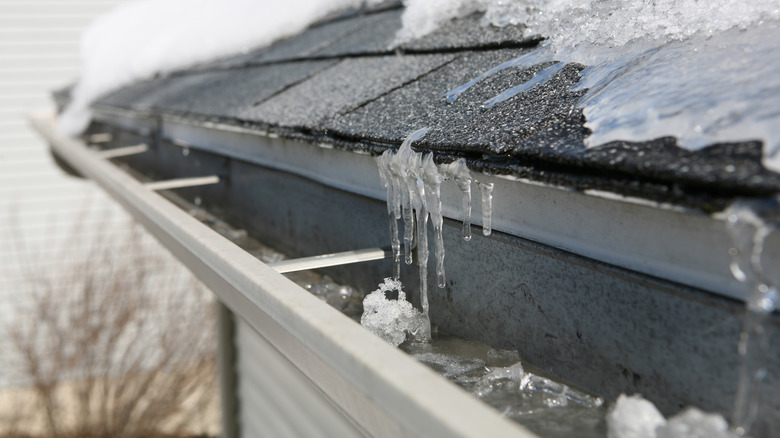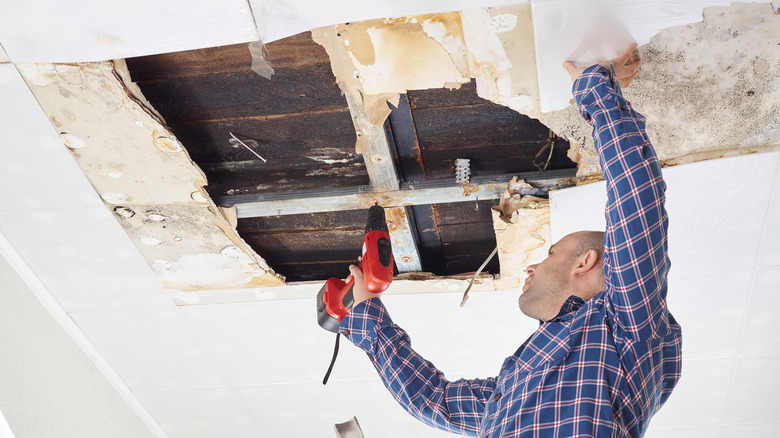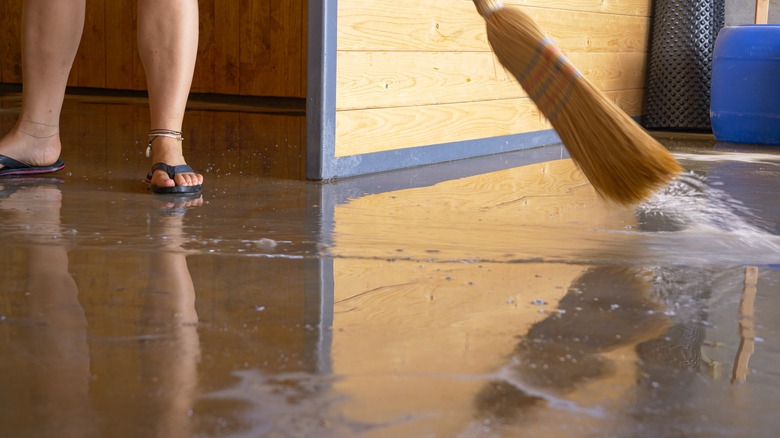Does Homeowners Insurance Cover Water Damage From Melted Snow?
For those who live in areas that experience cold winters, chances are you've dealt with — or at least know about — the damage melted snow can leave behind. In a 2020 survey conducted by ValuePenguin, 62% of homeowners stated that, a year later, they were still dealing with the property damage from the previous season's snow and ice. A large majority were able to eventually repair the damage, while others experienced delays in mending the mess. Unfortunately, as many who experience harsh and inclement weather know, the end of winter doesn't always mean the end of snow and ice; often, they continue into the spring.
In that same 2020 survey, 16% of participants claimed they faced flood damage at the start of the spring season. In fact, one in five homeowners were victims of property damage during both winter and spring. Among those who experienced flooding, a mere 38% of them had actually finished and paid off their repairs. Because of this, the question is, does homeowners insurance cover water damage from melted snow? Keep reading to find out.
What homeowners insurance does cover
If you have homeowners insurance and have fallen victim to damage from melted snow, you're in luck. Typical homeowners insurance policies do cover roof collapses caused by snow, sleet, or ice, Policygenius states. Policies will also cover any damage to your possessions, should the snow fall through the roof. While it might seem unlikely, USA Today says roofs can collapse under just 2 feet of snow, so if you live in a place like Vermont, where the average snowfall is around 7 feet (via World Population Review), you're at a higher risk of this occurring.
Standard homeowners insurance policies also cover any leaks in the roof caused by melted snow. Additionally, if your roof collapses and it becomes hazardous for you to live there, many policies will pay for you to temporarily relocate (usually to a hotel) until the roof has been replaced or repaired. With that being said, if you don't have homeowners insurance, it's time to start looking at policies. It's also good practice to review your current policy to make sure you're up to date regarding any changes you may have recently made to your home.
What homeowners insurance does not cover
There are certain circumstances where homeowners insurance policies will not cover snow, ice, or sleet damage. For instance, most policies do not cover flooding caused by melted snow and ice, says Insuramatch. If you would like coverage, you'll need to purchase flood insurance separately. To figure out if you're covered under water damage or not, think of it like this: If the snow never touches the ground, you're covered. Keep in mind you'll only be covered if your home is well-maintained. If your roof already has issues or damage, there's a chance it won't be covered by your insurance, according to Policygenius.
To reiterate, if your roof is leaking and the water touches the ground, your homeowners insurance policy won't pay for any of the flooding damages that follow. Along those same lines, your policy won't cover any damage by melted snow if your roof has (or had) prior issues. Because of this, it's important to winterize and maintain your roof to ensure that you're properly covered in the event of a collapse.


